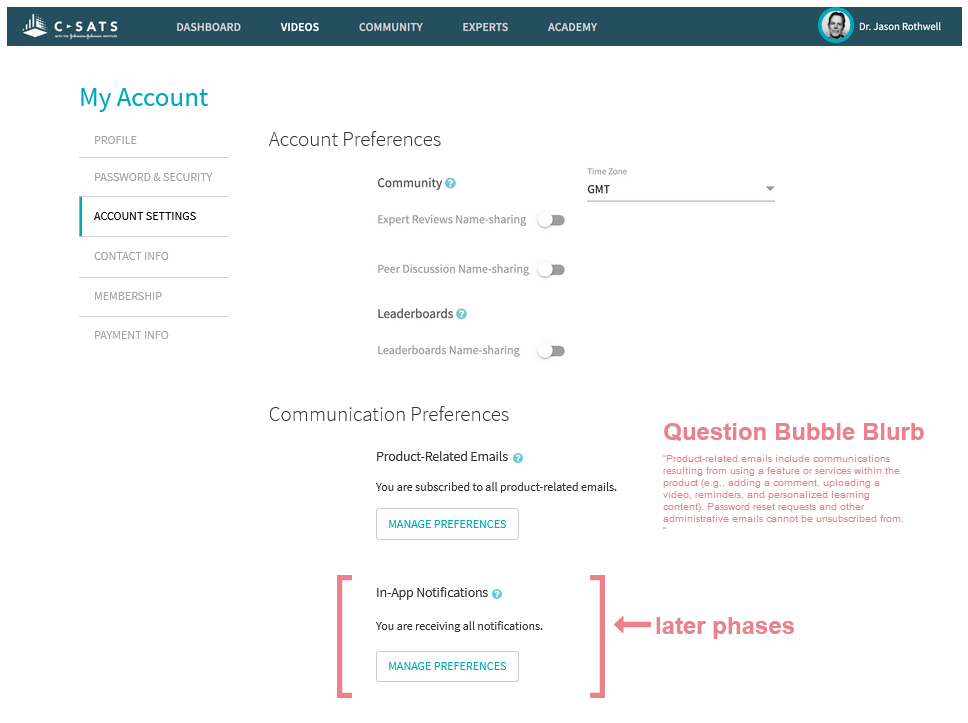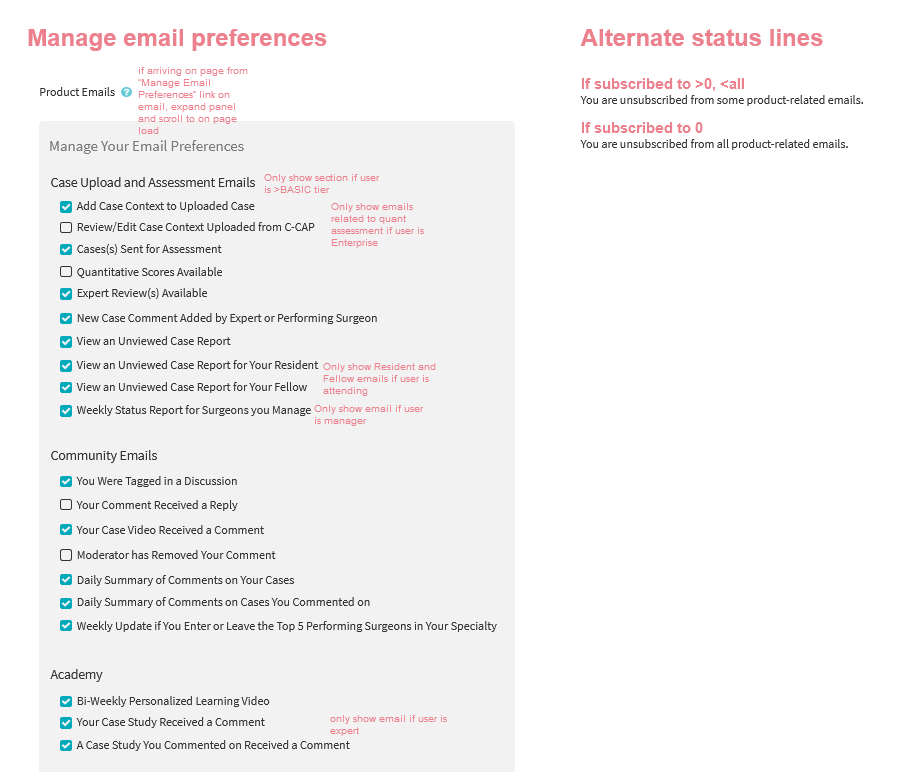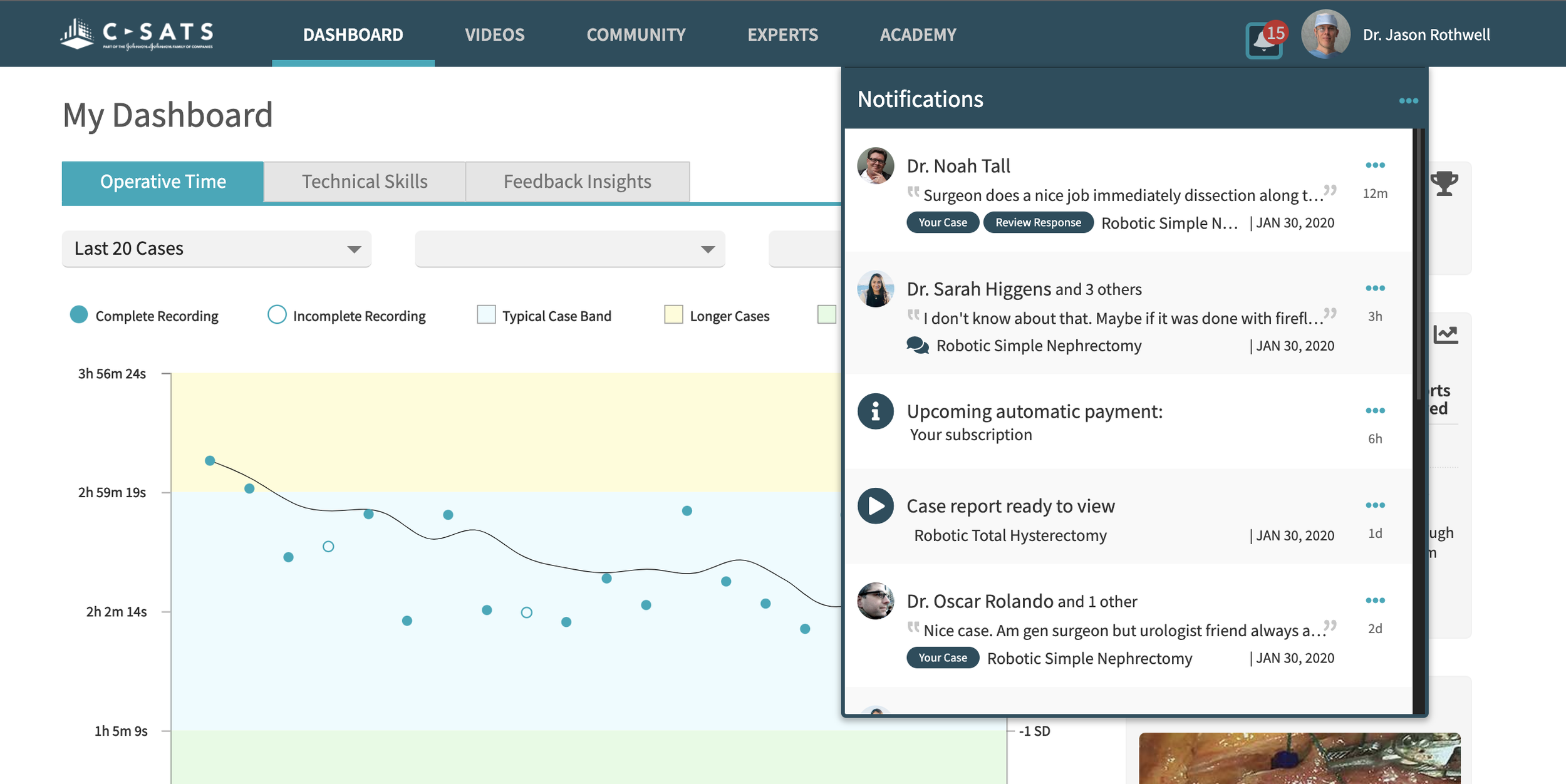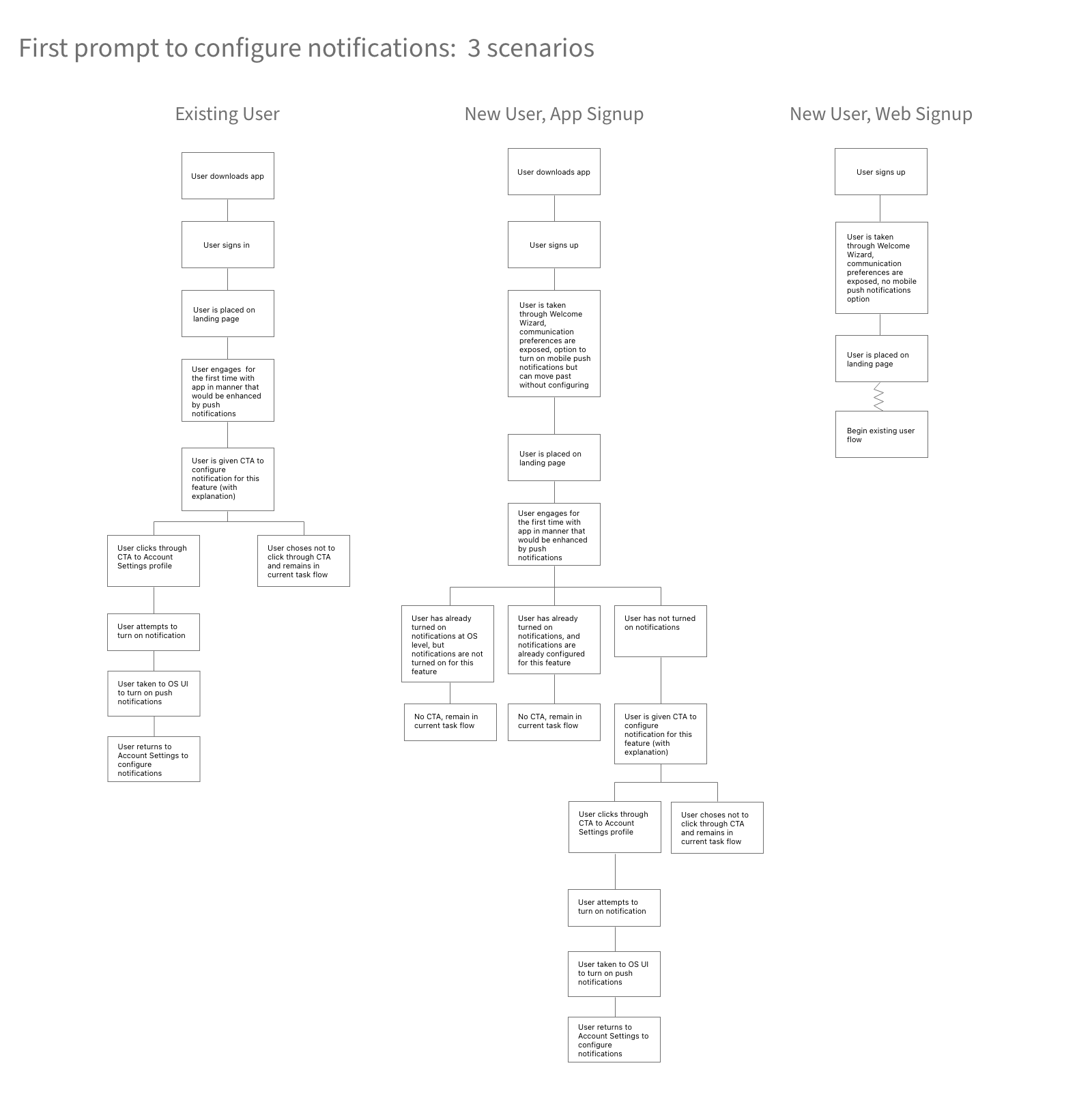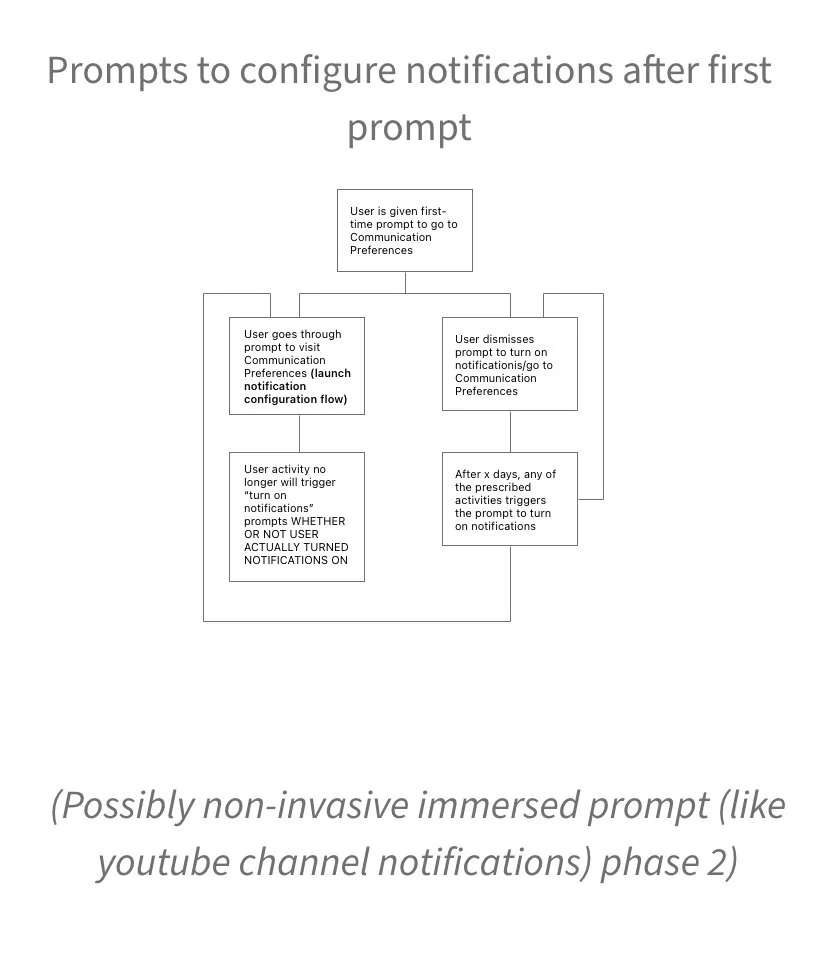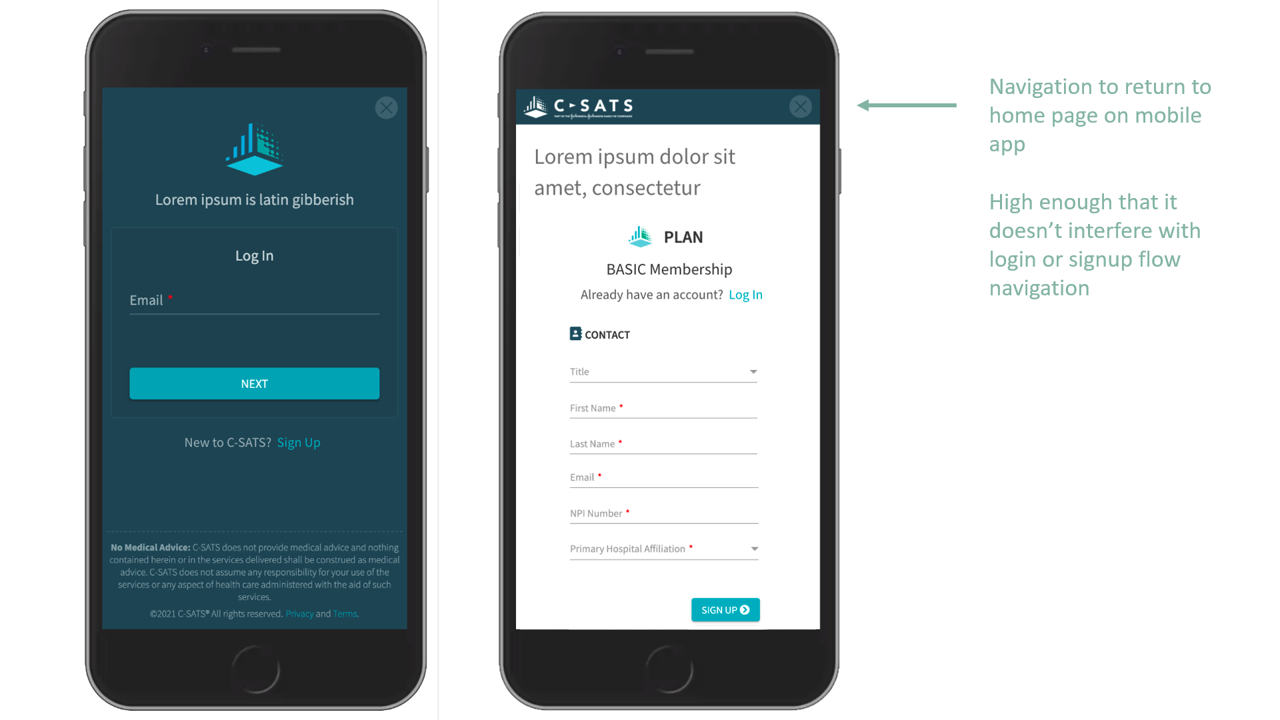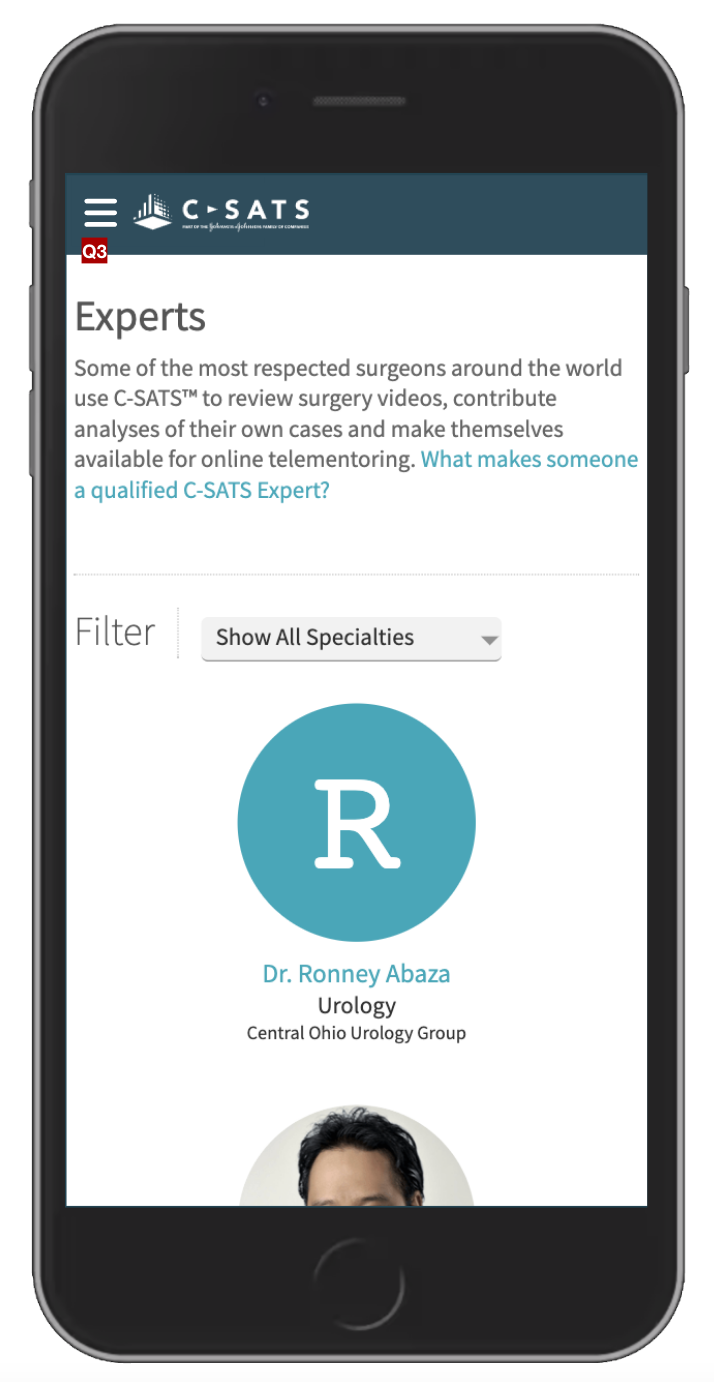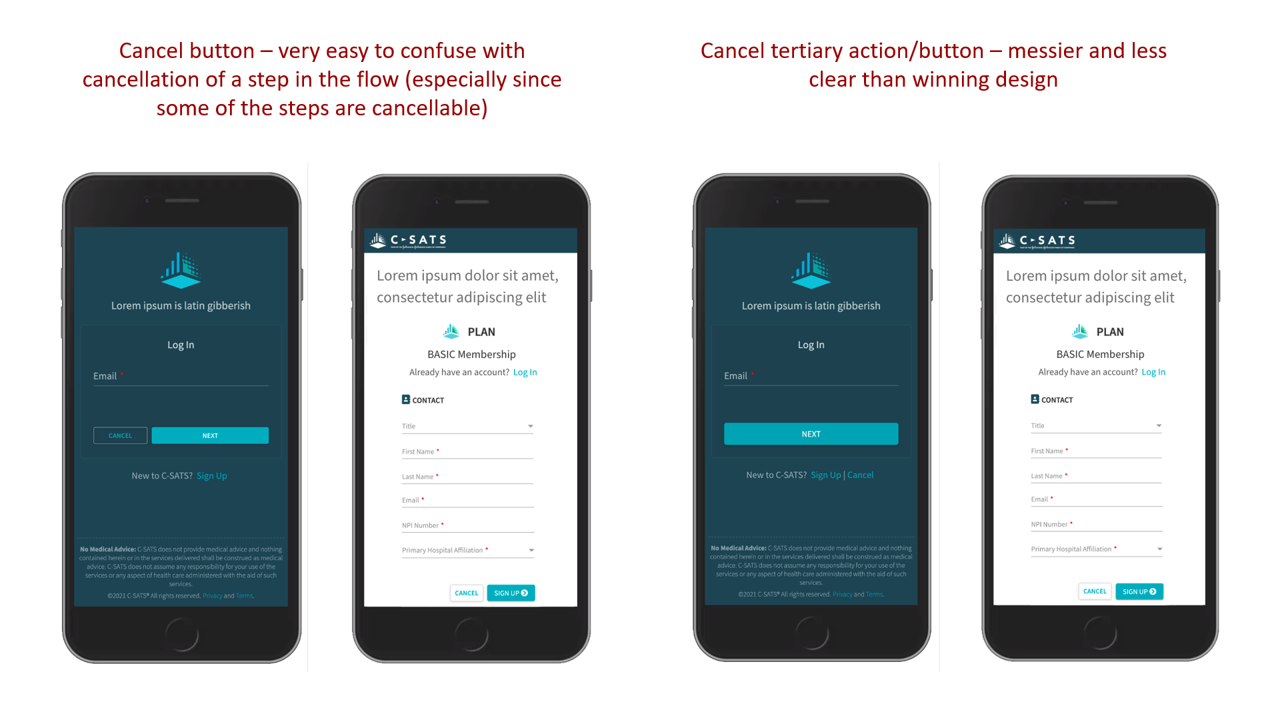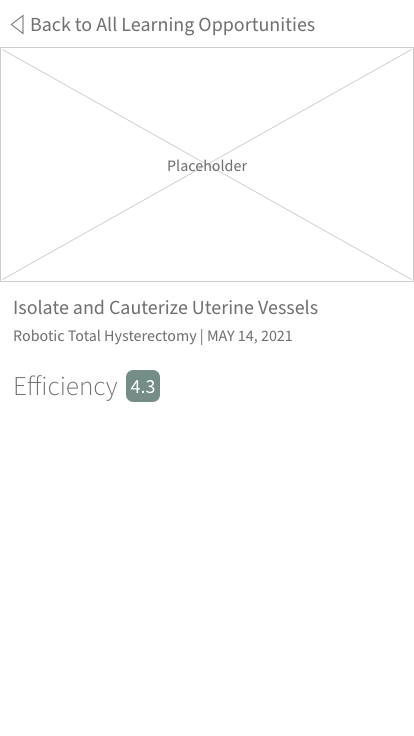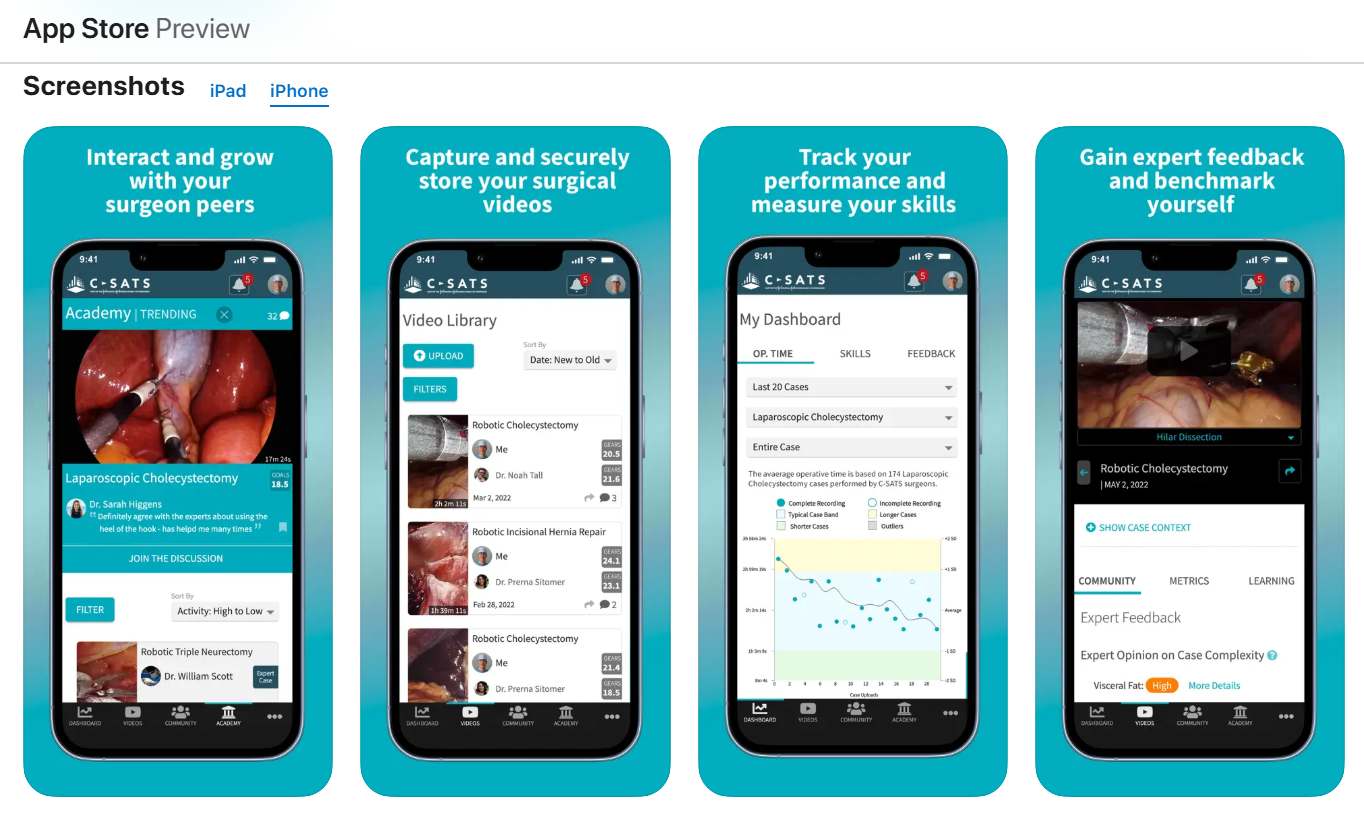
Surgical Learning in an App
Optimizing an existing SaaS multi-user platform for a native app, and my role in defining the login and onboarding experience.
Modify notification system to include and configure mobile and email notifications
Create “nudge” system to configure notifications
Collaborate with the UX lead to optimize platform navigation for a native iOS app experience
Redesign login flow across all platforms using mobile-first approach to be mobile-optimized and Apple store compliant
My Tasks
Diverging flows between desktop and mobile login and setup experiences create different page architectures, leading to different navigation requirements
The Apple store does not allow any payment processing outside of their system, requiring alterations to the login and signup flow
All other functionality between web and app platforms was to be consistent
Challenges and Restrictions
⚠️Warning! The following process documentation includes images taken from surgical videos, including organs, blood, and medical instruments.
Outcome
5 stars
on the Apple store

01
Company Background
What is C-SATS?
C-SATS helps surgeons, some of the most notoriously busy people in the healthcare industry, consistently receive feedback and technical scoring on their surgical performances. This is done by anonymously sending surgical performances for technical scoring and qualitative feedback by experts in the surgeons’ specialties, rather than relying on hospital scheduling to allow for live observation of surgical performances.
C-SATS also works with surgeons and around their busy schedules by making access to surgical learning and case reports extremely convenient — at least 50% of C-SATS traffic is from mobile devices, often from the surgeons’ lounge after surgeries. In this way, the natural next evolution of C-SATS was a native mobile app, to better serve surgeons and help them improve patient outcomes in a convenient way by optimizing the site for a mobile experience.
02
The Project
What Needed Optimizing?
With over 50% of all C-SATS traffic through mobile devices, C-SATS surgeons had been clamoring for a mobile app for years, mostly for the mobile notifications to instantly alert them to new case reports, comments on their cases, published expert feedback, new case review availability, and so on.
In addition to mobile notifications, changes to navigation method and login/signup process were important to consider: surgeons had been using the responsive interface at mobile size for years, but the navigation could be optimized for a mobile handheld device, and Apple store requirements made changes to the login flow necessary.
03
Initial Consolidated Feedback
Surgeons use mobile up to 50% of the time, often checking for case reports between cases, in the surgeon lounge, in transit, etc.
Finding 1
Expert reviewers’ needs are not being meet by pre-existing email alert system for expert review availability; by the time expert reviewers would check their email and see the alert, then log on and attempt to claim a review, it would be gone.
Finding 2
04
The Old Notification System
The Notification System
The original web-based notification system is twofold (which I had also previously designed):
Engagement and product email notifications
An activity feed (similar to Facebook’s activity feed)
Does not line up 1:1 with the engagement emails we send
Mobile notifications would need to line up 1:1 with the email notifications without interfering with the activity feed.
05
Optimizing Notifications
User Flows
I created a series of rules, laid out in the below flows, to control how new users would configure their mobile notifications:
Optimizing Notifications
I adapted the communication preferences from the pre-existing profile module with key changes in the newly specific email-and-mobile notification system:
Included in this optimization are the flows I created above, demonstrating how configuration is first prompted, and how the desktop and mobile-web version corresponds to the new design, since push notifications are not applicable:
06
Optimizing Login
The Old vs the New Login Flows
I gave the pre-existing login UX a full UI and visual refresh, new vs old side-by-side examples below:
App-to-Browser Navigation
Due to Apple store rules, there was a business requirement to only allow signup for free accounts through the mobile app. Pre-existing paid accounts could be logged into, but no payment processing or even referral to payment processing would be allowed in the app.
This changed page architecture between the signup and login pages on each platform, necessitating a new affordance to navigate between flows on mobile:
As the web version of the platform has more pages, the responsive menu better suits a hamburger affordance:
Previous iterations:
07
Optimizing Layout
Wireframes
I created the following wireframes, excerpts from my recommendations to optimize from the responsive web layout to a native app experience.
Changes include:
Moving the menu out of a hamburger and down to the bottom, where a thumb can easily tap it (for one-handed mobile use)
Full-screen modes for sub-pages, modals, and expanded modules (to optimize for the smaller space phone screens present)
Moving video step navigation overlay position (to preserve screen real estate)
Final Visuals
The final UI and visuals (done by the UX lead) corresponding to the above wireframes, showcasing layout:
08
The Outcome
The app was released to the Apple store first, with the Android version planned for a later release. This was because the majority of mobile usage among C-SATS surgeons was on apple devices.
Looking Forward
Beyond just adapting the existing site to a mobile app, we planned for further optimizations that a mobile app would enable:
Ways to expand the freemium offering, now that any surgeon could download the app for free
Mobile-optimized open forums for peer-to-peer discussion on specific topics
Far into the future — easy portable surgical bedside assistance for complex cases, to easily access expert opinions in real-time.
09
User Testimonials
“This is an amazing program whereby surgeons can have their surgical techniques analyzed by experts around the country but yet remain anonymous... I would strongly recommend that every surgeon use this and it should become part of all teaching programs.”
“One of the best tools to teach and learn from experts in the field. Easy to use and great to review surgeries and give insight.”






